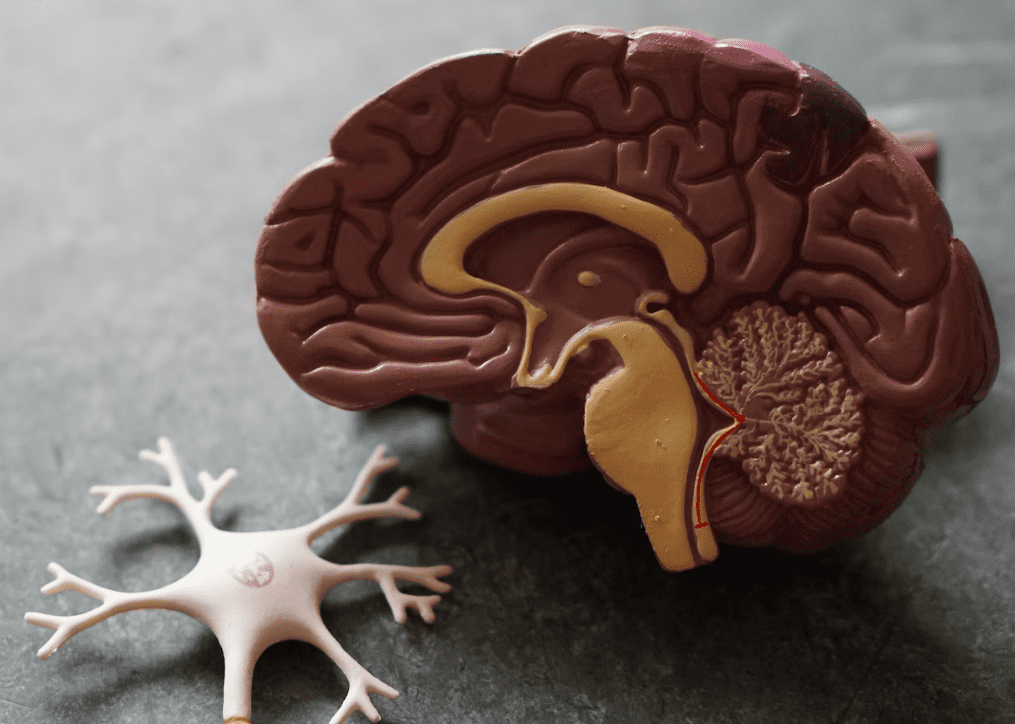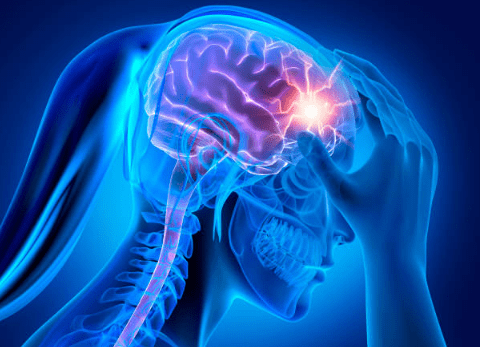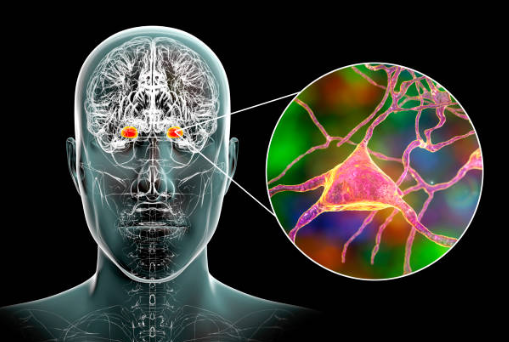How Meditation Changes the Brain
Discover how meditation alters the brain.

Selfpause Affirmation App
Download the app to get 1,000’s of affirmation meditations and everything you need to write, record and listen to your own.
A meta-analysis of multiple studies is an excellent way to focus on scientific evidence. This method evaluates whether the findings from each study are consistent. One meta-analysis looked at meditation and brain regions and found eight areas positively impacted by meditation. Two regions were highlighted as being particularly important for successful people.
Meditation Increases White Matter

There’s evidence that meditation increases white matter, the part of the brain that helps us think and stay balanced. Increases in white matter are linked to greater brain function, including the development of stronger neural pathways. White matter is comprised of nerve fibers that connect neurons in the brain. These fibers are covered in myelin, which speeds up communication between neurons and protects them from short-circuiting.
One study examined the effects of meditation on the brain structure of long-term meditators. They found that participants exhibited increased FA values in several brain regions, including the thalamus, the insula, and the amygdala, which governs emotion regulation. These brain regions were activated, which slowed the aging process.
The researchers used a noninvasive MRI-based technique to delineate white matter fibers in vivo and assess their structural plasticity. This method can also be used to assess the changes in the brain’s white matter following training and learning. Researchers have found that increases in FA in the corpus callosum and anterior cingulate cortex may indicate improved interhemispheric connectivity and ease symptoms of anterior cingulate cortex dysfunction.
Other studies suggest that the changes in the ACC can affect the emergence of cognitive processes such as motivation and emotion. In particular, it has been shown that the precuneus is associated with the ability to perform reward-based decision-making. The precuneus is a key structure in the default mode network and displays task-dependent connectivity in the right frontoparietal network. Furthermore, it is implicated in the experience of happiness.
Increases in white matter after meditation have been linked to a decrease in the activity of the default mode network and increased activity in cognitive and emotional control regions. Furthermore, these changes in the gray and white matter of the brain are associated with changes in neuronal plasticity. Meditation also leads to structural changes in large brain networks.
Meditation Increases the Hippocampus

Meditation has been linked to increased gray matter in the hippocampus, a brain region important for memory and emotion regulation. Researchers also found a decrease in the volume of another part of the brain, called the amygdala, which controls stress and emotion. This study shows that meditation has a profound effect on the brain.
This region is located behind the frontal lobe and is associated with self-regulatory processes, attention conflicts, and cognitive flexibility. In addition to the hippocampus, the limbic system also contains the prefrontal cortex, which is involved in executive functioning, problem-solving, and emotion regulation.
The hippocampus helps with learning, memory, and emotional regulation, and it is also connected to the temporoparietal junction, which is associated with perspective-taking and compassion. Another region, the Pons area, is related to regulatory neurotransmitters. The amygdala plays a key role in stress, anxiety, and fear.
Moreover, meditation has been shown to preserve gray matter volume in the brain, which controls the rate of information processing. This means that it can halt and even reverse cognitive declines as people age. In a study, researchers compared brain scans of fifty people who had practiced meditation for at least 20 years. Their findings confirmed their earlier findings, indicating that the practice reduced gray matter volume loss and reduced symptoms of major depression and anxiety.
Meditation Reduces the Flow of Incoming Information

Meditation reduces the flow of incoming information by slowing down the activity in the brain’s thalamus, which channels sensory data deep into the brain and helps us focus our attention. It also slows the activity of the frontal cortex, which gathers sensory information and places us in time and space. These changes are thought to lead to better focus and mental health. Meditation also reduces the activity in the brain’s parietal lobe, which funnels sensory data into the brain.
Meditation is also associated with an improvement in memory recall. Catherine Kerr, a researcher at the Osher Research Center and Martinos Center for Biomedical Imaging, found that people who practiced mindful meditation were able to alter the brain wave that screens out distractions, resulting in superior memory recall compared to non-meditators. This could be due to the fact that meditators tend to train their brains to ignore distractions and remain more focused.
While the study was limited to this type of meditation, findings from other types of meditation have been similar. Meditation has been linked to changes in N2, P3, and LN, which are known attentional regions. This is known as the Stroop effect. In addition to the lowered flow of incoming information, mindfulness meditation has also been shown to enhance self-regulation.
Meditation Improves Emotional Control

There are a number of benefits to meditation. One of them is improved emotional control. This effect is also reflected in brain activity. Research has shown that experienced meditators have increased gray matter volume in areas of the brain responsible for emotional regulation. This may explain why they have better control over their negative emotions. Although research into meditation and emotional regulation is still in its early stages, these findings suggest that meditation improves emotional control and attentional control.
Meditation is a powerful tool for improving emotional control. You can practice this technique by focusing on your breathing. In this way, you can calm your mind and see things clearly. In addition, it allows you to be present in the moment. This practice improves your perspective and helps you recognize how little matters.
Although research on meditation and emotional regulation is relatively new, it is evergrowing. There are many studies and articles that note how meditation affects brain structure and activity. More research on this subject will help us understand how meditation works to improve emotional regulation. It has been shown that meditation can help people cope better with stress and reduce their levels of anxiety and depression.
In a study on experienced meditators, attention-related activity in the right hemispheric frontocentral regions of the brain improved over time. Meditators were also more efficient at processing salient emotional stimuli. These effects suggest that the effects of meditation on attention and emotional regulation are due to the increased top-down control of salience detection, which is normally processed by the amygdala.
Meditation Thickens the Amygdala

The amygdala is a deep structure in the anterior temporal lobe. It has extensive connections to other corticolimbic areas of the brain. It is linked to attentional processing, aversive learning, and negative emotions. Meditation has been found to thicken this region.
The structure and function of the amygdala differ among meditation novices and experts. In one study, experts who practice compassion/loving-kindness meditation reported increased activity of the amygdala during meditation. The authors concluded that this effect is consistent with a reduction in reactivity and stress following meditation practice.
The results of this study indicate that meditation thickens the amygdala and improves connections between the brain’s various regions. Meditation also strengthens the prefrontal cortex, the brain area associated with higher-order functions such as attention, self-awareness, and rationalization. This area is also known as the “control panel” of the brain. Regular meditation also thickens this part of the brain, which helps regulate our emotions and our behavior.
The effects of meditation on the brain are also similar to those of yoga and meditation. Although there are variations in the results, they generally involve cortical thickening and change in respiration rate. The cortical thickness may increase due to an increased number of neurons in the cortex, increased volume of glia, and increased regional vasculature. All of these factors contribute to increased neural function, and greater brain capacity. All of these are just some of the beneficial effects that you can see in your life by simply adding meditation to your daily routine.
Our Top FAQ's
The effects of meditation on the brain are not yet fully understood, but research suggests that it can alter brain structure and function in various ways. Some potential effects of meditation include changes in brain regions associated with attention, emotional regulation, and self-awareness, as well as increased grey matter density and connectivity in certain brain regions.
Meditation is thought to alter brain structure and function through a variety of mechanisms, including the modulation of neural activity, the release of neurotransmitters, and the strengthening of neural connections. These changes may lead to improved cognitive function and mental health, as well as other potential benefits.
There is evidence to suggest that meditation can improve cognitive function and mental health, although more research is needed to confirm this. Some studies have found that meditation can reduce stress, anxiety, and depression, and may also improve attention, memory, and other cognitive abilities.
It is difficult to directly compare the effects of meditation to those of other forms of mental training, as each individual may respond differently to different forms of training. However, some research suggests that meditation may be more effective than other forms of mental training in some areas, such as emotional regulation and self-awareness.
The changes in the brain brought about by meditation may be long-lasting, although more research is needed to confirm this. Some studies have found that the effects of meditation on the brain may persist even after the practice is stopped, while others have found that the effects may fade over time.
